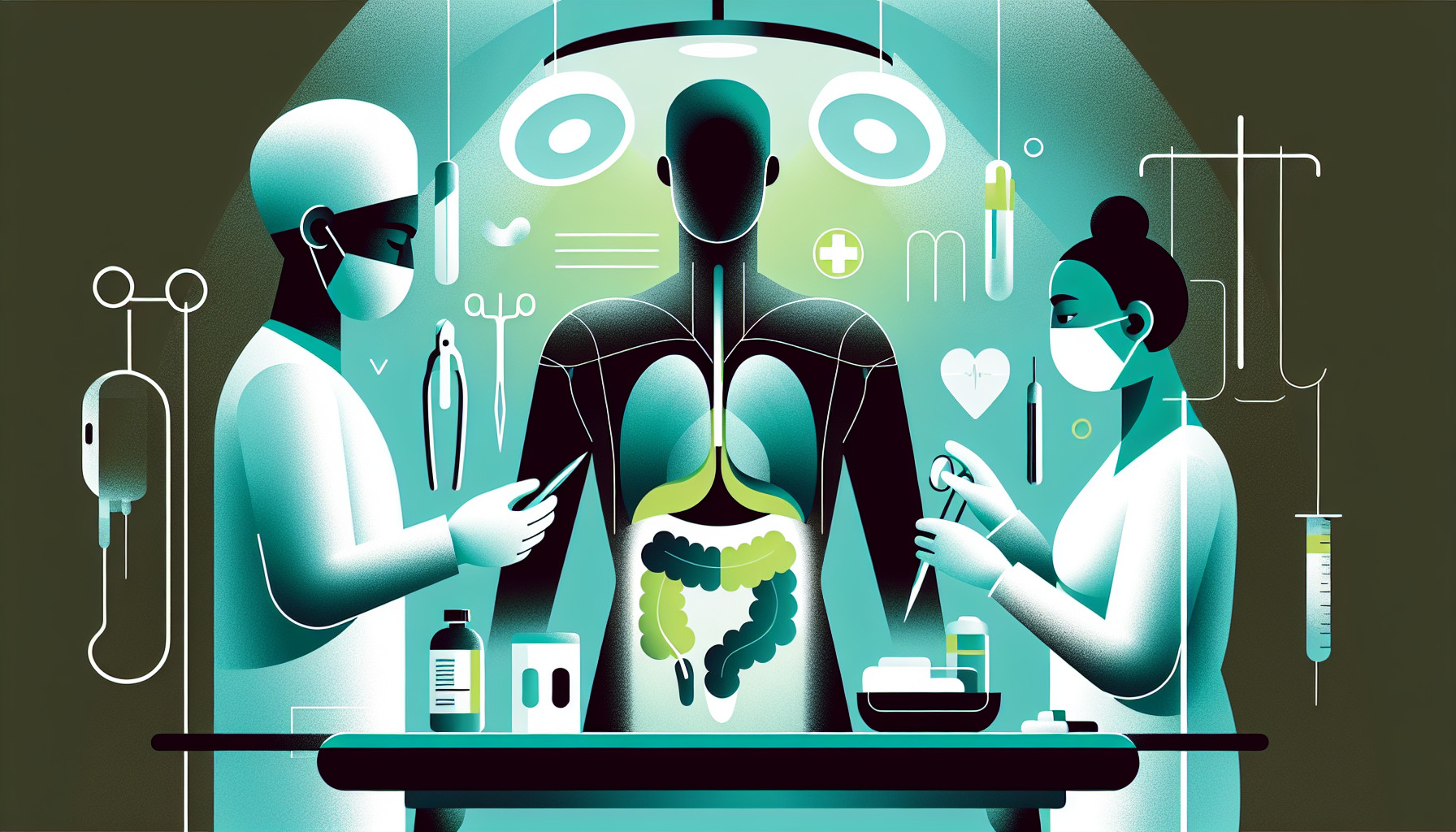Our Summary
This research paper investigates the relationship between having an appendectomy (removal of the appendix) and developing inflammatory bowel disease (IBD), a group of disorders that cause inflammation in the digestive tract. By using genome-wide association studies (research methods that look for genetic variations linked to a particular disease) and Mendelian randomization (a method that uses genetics to determine causal relationships between risk factors and health outcomes), the research aims to provide insights into whether having an appendectomy actually causes IBD or whether other factors are at play.
FAQs
- What is an appendectomy and how is it related to inflammatory bowel disease?
- What is Mendelian randomization and how is it used in genome-wide association studies related to appendectomy?
- What does causality mean in the context of appendectomy and inflammatory bowel disease?
Doctor’s Tip
One helpful tip a doctor might give a patient about appendectomy is to make sure to follow post-operative care instructions carefully, including taking prescribed medications, getting plenty of rest, and gradually reintroducing solid foods into your diet. It’s also important to watch for signs of infection or complications, such as fever, increasing pain, or redness and swelling around the incision site, and contact your doctor immediately if you experience any of these symptoms.
Suitable For
Patients who are typically recommended for an appendectomy are those who have been diagnosed with appendicitis, which is inflammation of the appendix. Appendicitis can cause symptoms such as abdominal pain, nausea, vomiting, and fever. In some cases, if left untreated, appendicitis can lead to a ruptured appendix, which can be life-threatening.
Other types of patients who may be recommended for an appendectomy include those with recurrent episodes of appendicitis, those with a history of abdominal surgery, and those with a tumor or other growth in the appendix. Additionally, patients with certain underlying medical conditions, such as inflammatory bowel disease, may also be recommended for an appendectomy if their condition puts them at an increased risk for complications related to appendicitis.
Timeline
Before Appendectomy:
- Patient experiences symptoms such as abdominal pain, nausea, vomiting, and fever.
- Patient visits a doctor who performs a physical examination and may order blood tests and imaging studies to diagnose appendicitis.
- Patient is diagnosed with appendicitis and scheduled for an appendectomy surgery.
After Appendectomy:
- Patient undergoes the appendectomy surgery, which typically takes around 1-2 hours.
- Patient stays in the hospital for a few days for monitoring and recovery.
- Patient may experience pain, discomfort, and limited mobility in the days following surgery.
- Patient is discharged from the hospital and instructed to follow post-operative care instructions, such as taking pain medication, resting, and avoiding strenuous activities.
- Patient gradually resumes normal activities and diet as they recover from the surgery.
- Patient follows up with their doctor for a post-operative visit to ensure proper healing and recovery.
What to Ask Your Doctor
- What is the reason for needing an appendectomy?
- What are the potential risks and complications of the surgery?
- How long will the recovery process take?
- Are there any alternative treatments or options to consider before having the surgery?
- Will there be any long-term effects or changes in health after the surgery?
- How soon can I return to normal activities after the surgery?
- Will I need to make any changes to my diet or lifestyle after the surgery?
- Are there any specific follow-up appointments or care instructions I should be aware of?
- What is the success rate of this surgery for patients in my situation?
- Are there any additional tests or screenings I should have before the surgery?
Reference
Authors: Zhao Y, Bai X, Ding Y, Gao B, Hu S, Yang X, Li B. Journal: J Gastrointest Surg. 2024 Jul;28(7):1174-1176. doi: 10.1016/j.gassur.2024.04.019. Epub 2024 Apr 22. PMID: 38657728
